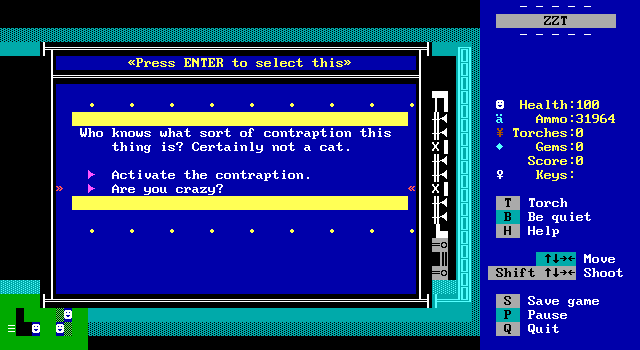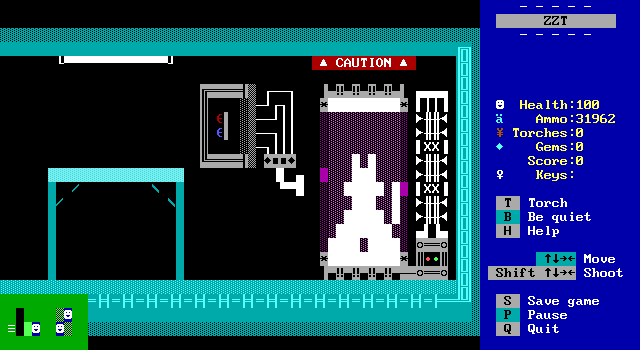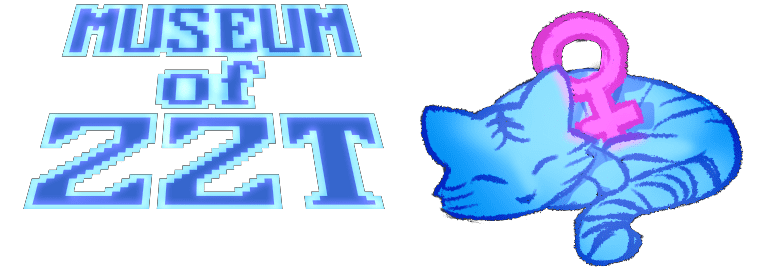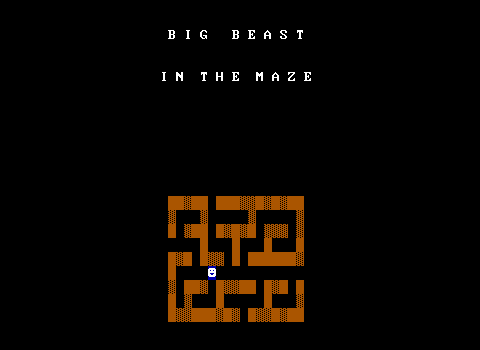Where can I get CAT, CAT, THAT DAMN CAT?
CAT, CAT, THAT DAMN CAT is available on the Museum of ZZT as well as playable in browser via Archive.org
CAT, CAT, THAT DAMN CAT
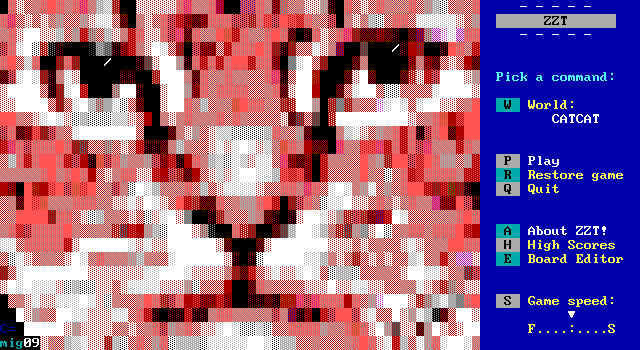
Released: Oct. 13, 2009
CAT, CAT, THAT DAMN CAT (which I am going to just call Cat, Cat going forward) recently turned 7-years old, and yet it's one of the most recently released ZZT games out there.
So far, (excluding my post-mortem on Ruins of ZZT,) every world looked at has been from within the first decade of ZZT's release. This time we'll be taking a look at a game that comes from the bitter end. One that's so recent, that the front page of z2 still has a news post for its release. (Which also goes to show how dead z2 is these days as well.)
By 2009, ZZT was pretty much done for. The community was rapidly shrinking, newly created worlds were a rarity, and those that would still come out, were greeted with an empty audience.
If you released a ZZT game in 2009, you'd be lucky to get ten people to play it. At this point, creating something with ZZT was about the journey and not the destination. There'd be no praise, no awards, no feedback. Cat, Cat was made because Commodore wanted to make it.
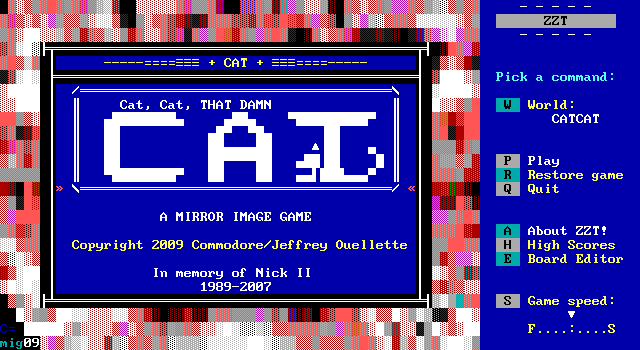
The game's title screen was created using ZBitmap, using a photograph of Commodore's own cat. It winds up being one of the most visually striking title screens I've ever seen in ZZT.
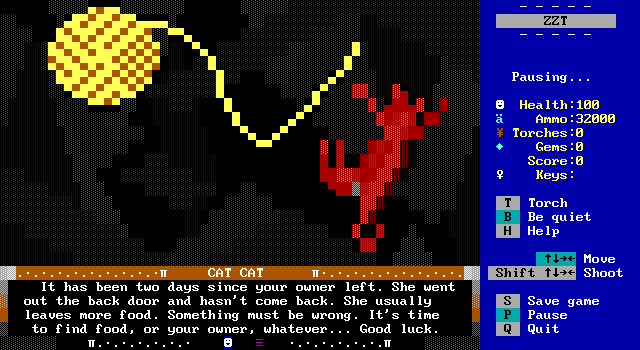
Starting the game gives a simple introduction, your owner is gone, and you need to find food, or your owner. Cats don't particularly value one over the other.
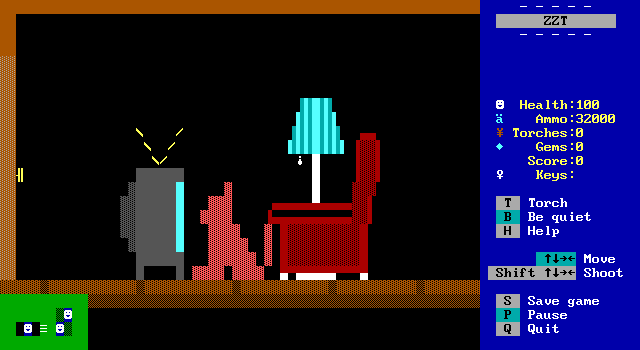
And with that, the standard gameplay begins. This late into the lifespan of ZZT, there's a definite interest in creating things which haven't been done before. No longer focused on pushing the limits of ZZT to emulate watered-down mechanics and gameplay of modern games, but instead to create experiences that have never been done before. Cat, Cat stands out as unique among ZZT games, and it becomes apparent why upon taking your first step.
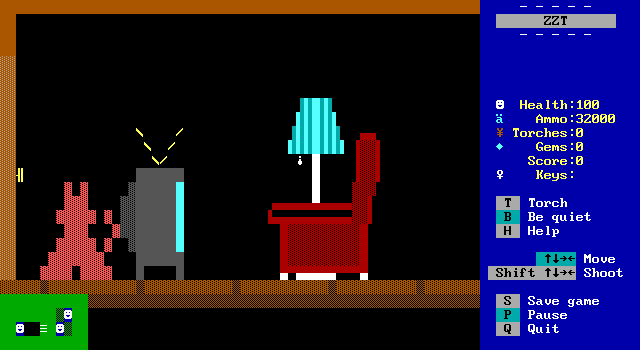
When the player moves left, the cat repositions themselves on the screen. At first glance, one might expect this board to be an opening cutscene, a static piece of artwork depicting a living room, when in reality it's the way the game presents itself to player. Several objects in the dark green area check where the player is standing and draw the cat based on how the player stands. The game handles graphics like an LCD game.
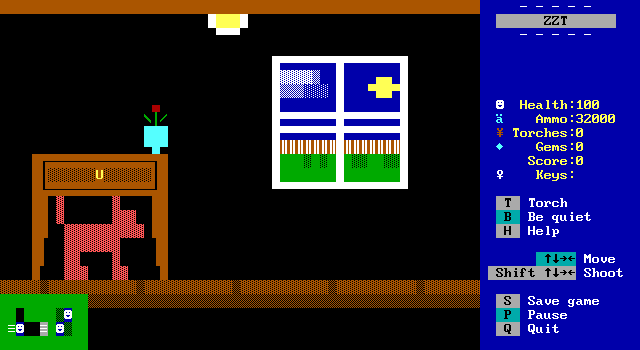
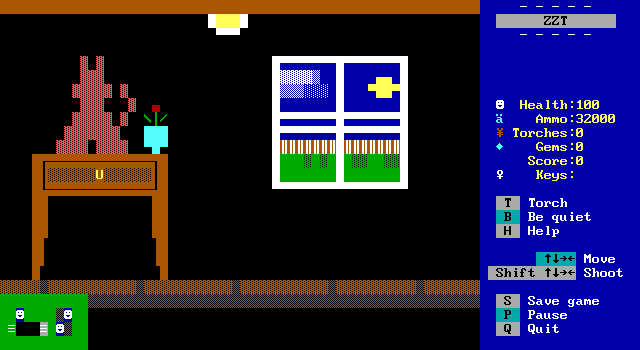
The player can freely walk into the passage and proceed to the next room where the engine comes into play again. This time, with vertical movement as a possibility allowing the cat to jump up onto the endtable.
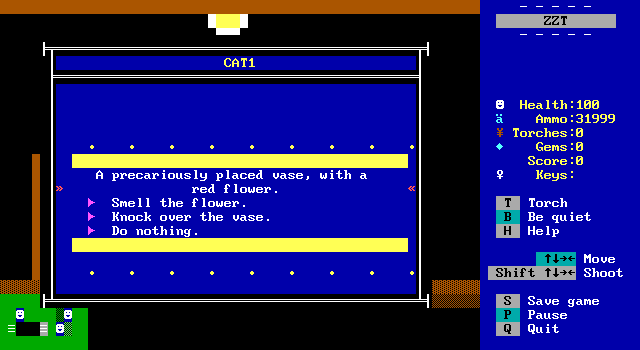
Though not explained explicitly, those familiar with ZZT's player clones will see the two surrounded by breakable walls and know that shooting will cause some action to occur. This is the way that the cat can interact with the world around them.
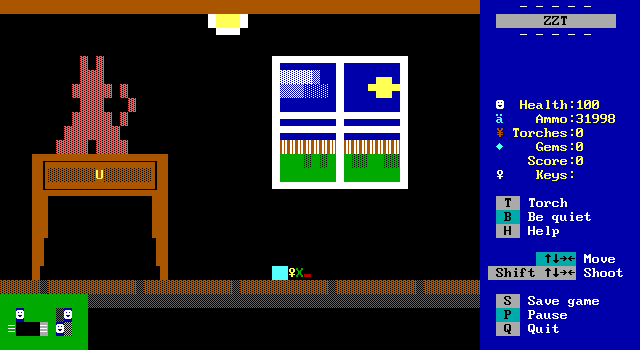
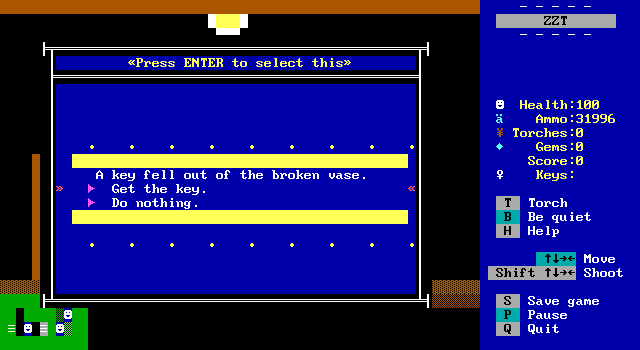
Knocking over the vase causes a spilled vase to appear on the ground where the player can collect a key.
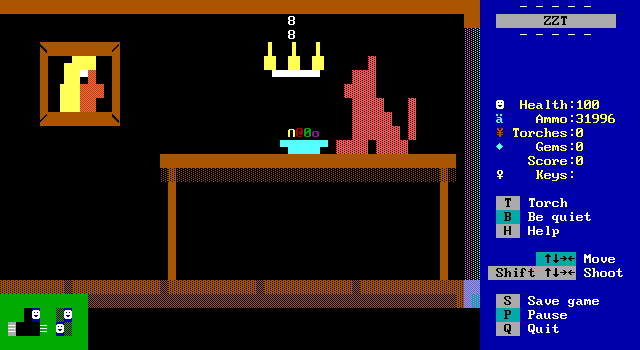
Some objects, are purely decorative. Standing by the photo or fruit bowl will give you descriptions, but can't be interacted with. If you thought about eating the fruit, you'll be disappointed to learn they're wax.
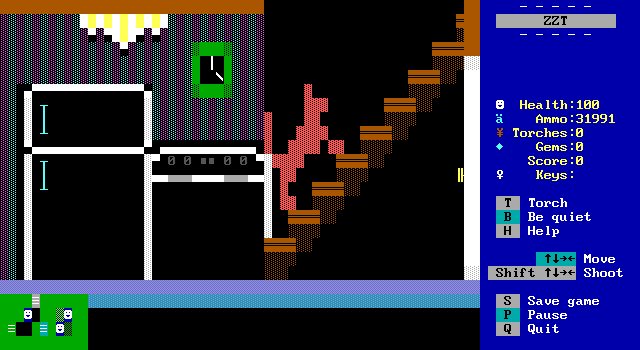
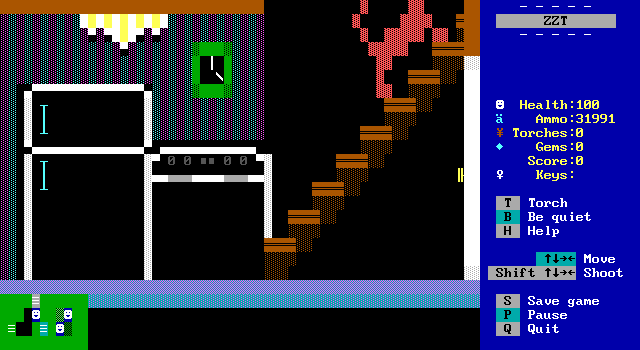
The kitchen has the player climb tiny stairs to make the cat do the same. The game's engine betrays that it will be possible to exit from that door at some point due to the third passage visible in the player area.
Worth noting is the kitchen has wallpaper, and uses large appliances as a way to give a room a background without having the silhouette of the invisible cat sprites showing. Commodore is required to do a lot of creative design to bring life into rooms which have to have large black spaces where the cat can appear.
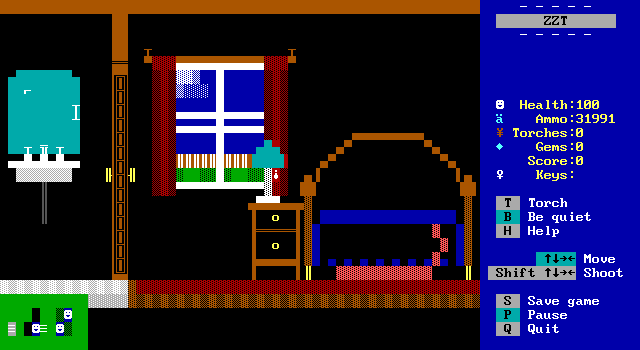
A horizontal row of red walls with three more for a tail manages to create an adorable scene of the cat hiding beneath the bed.
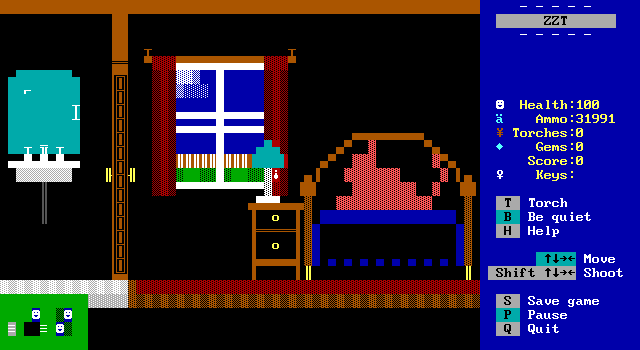
Or the player can choose to nap on top of it.
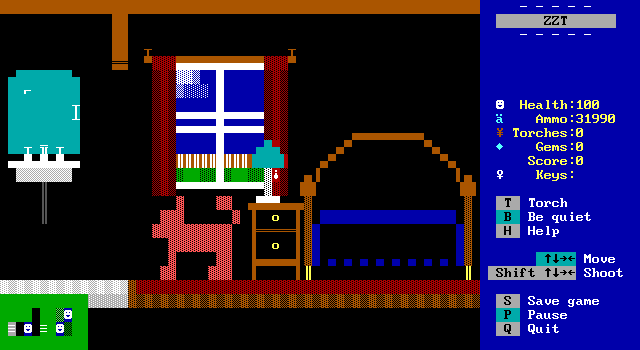
The bathroom door is locked, but can be opened with the key found in the vase.
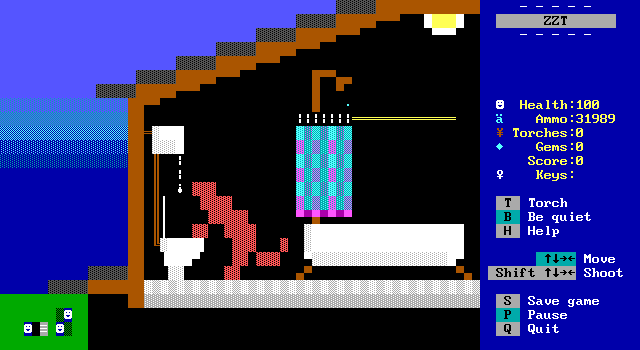
The bathroom has a leaking showerhead which constantly drips water as well as a toilet which can of course be interacted with.
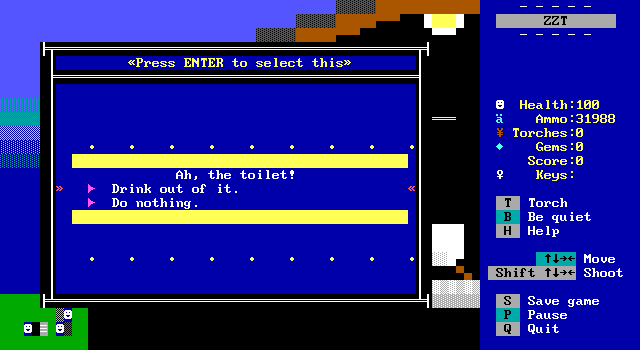
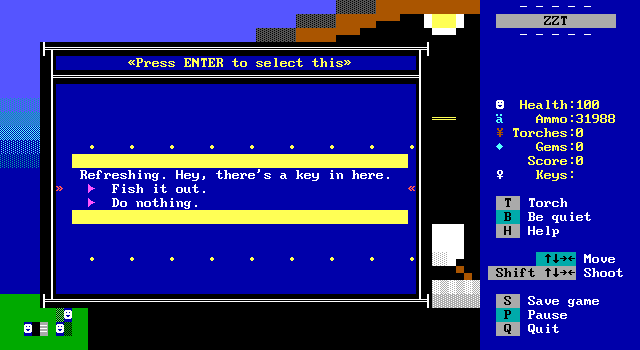
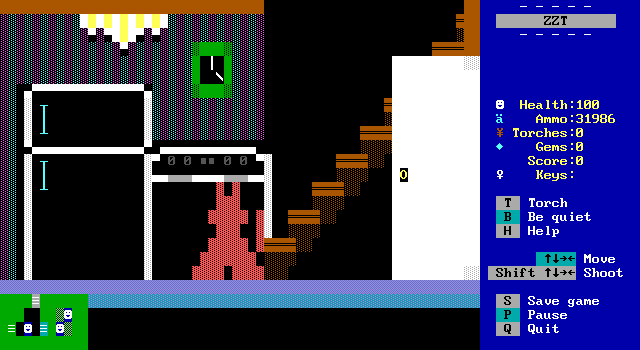
With the new key, it's possible to open the backdoor to the house and venture outside. Making a return trip like this does show the limitations of these static cat "sprites" in that they won't be able to change facing, so it leads to things like walking down the stairs backwards.
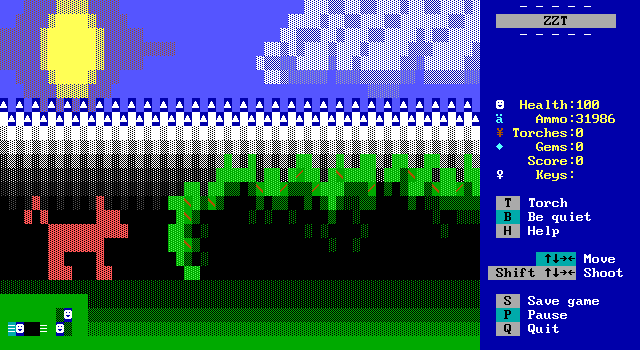
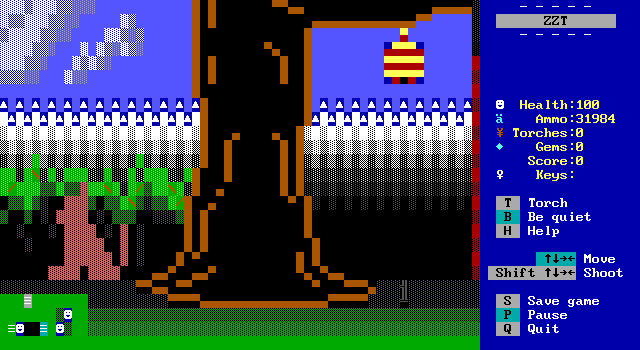
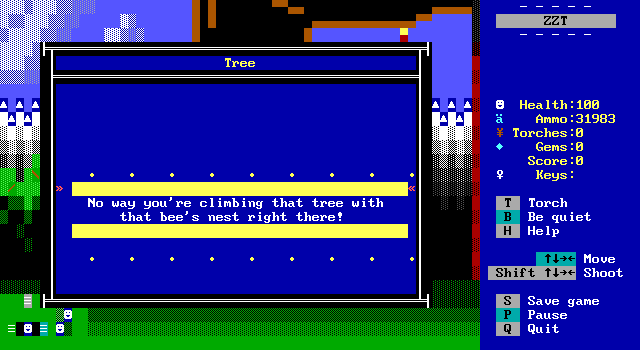
Stepping outside, the game presents its first "puzzle". The cat doesn't want anything to do with those bees.
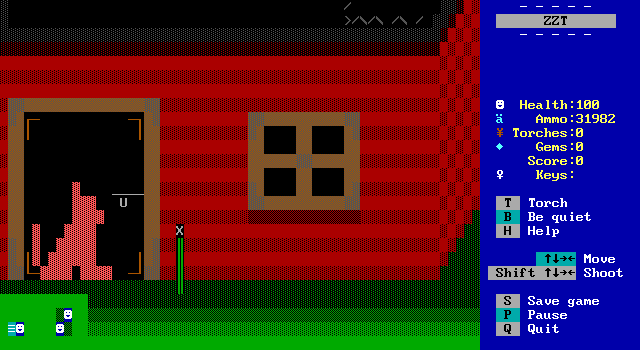
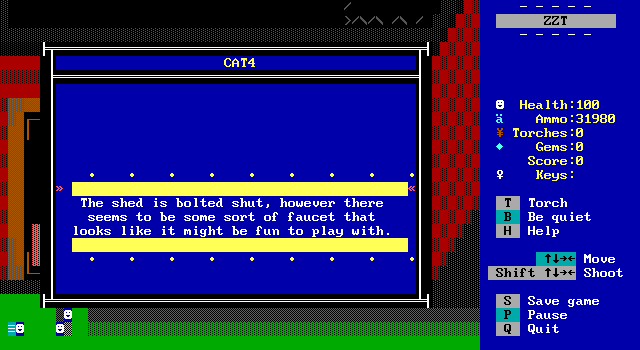
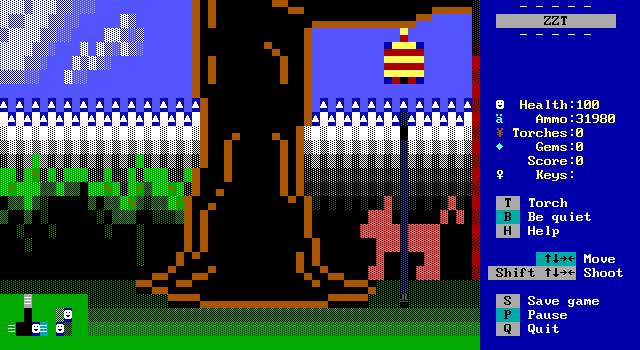
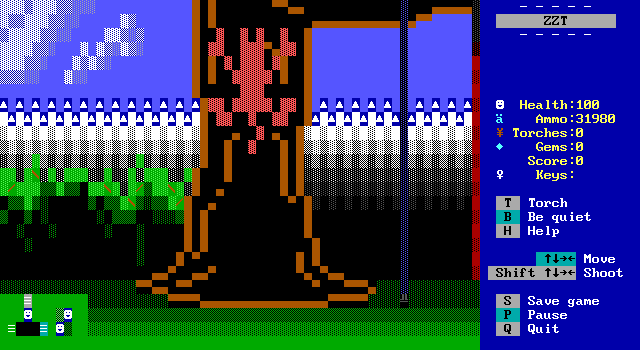
Activating the sprinkler conveniently destroys the beehive. There's also this great sprite of the cat climbing the tree.
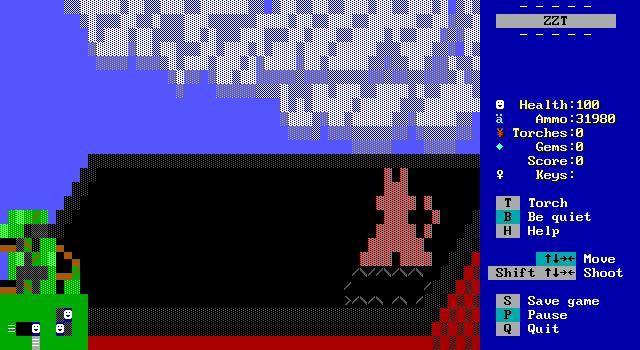
After climbing the tree and walking off a branch, the cat can take a one way trip through the hole in the shed's roof to get inside.
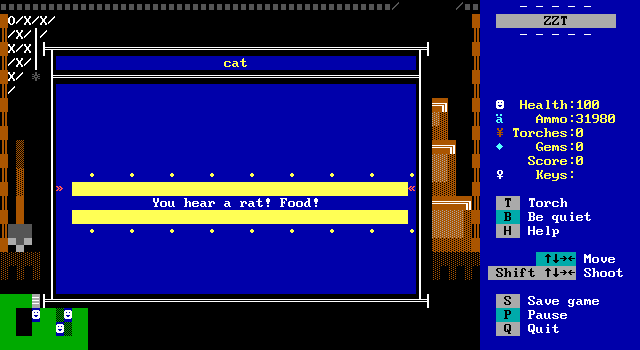
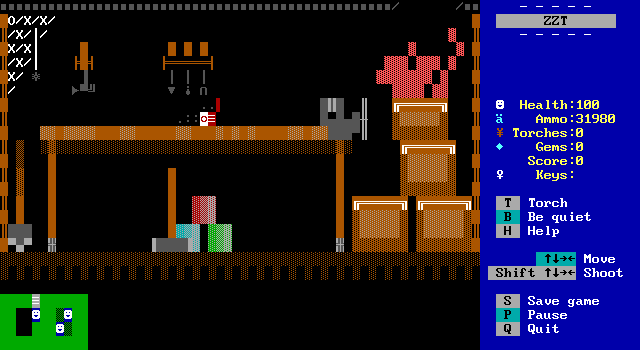
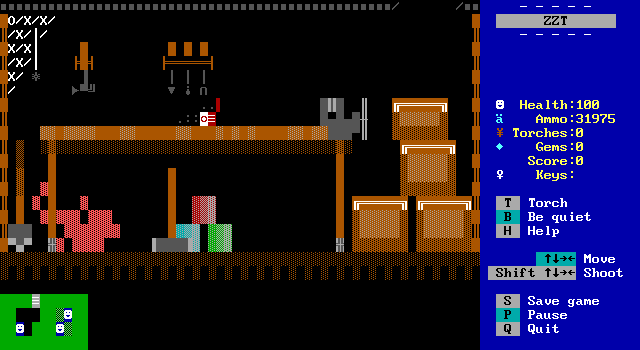
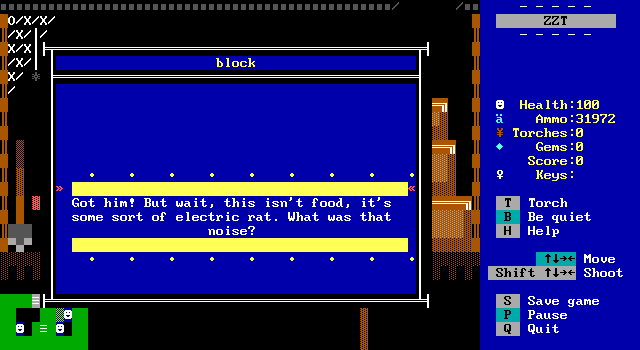
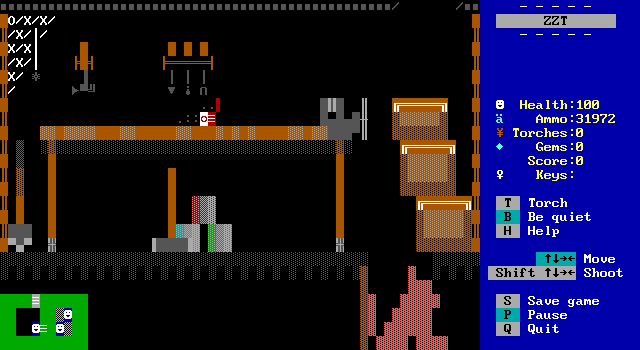
The rat actually moves around the room rapidly, appearing and disappearing with movement matching in style to that of the cat. The player has to wait for the rat to be on the same space as the cat before pressing the spacebar to catch it.
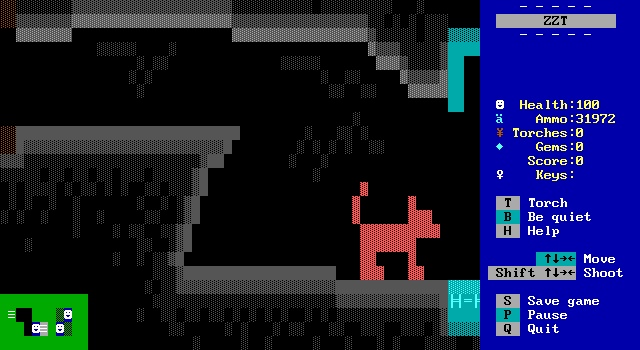
Of course, the rat turns out to be mechanical, and its capture opens up a trapdoor in the shed leading to cavern.
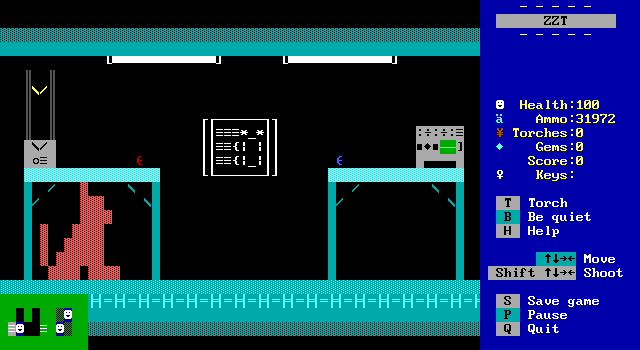
The cavern leads to a secret laboratory full of strange contraptions. On each of the tables there are fuses that can be collected.
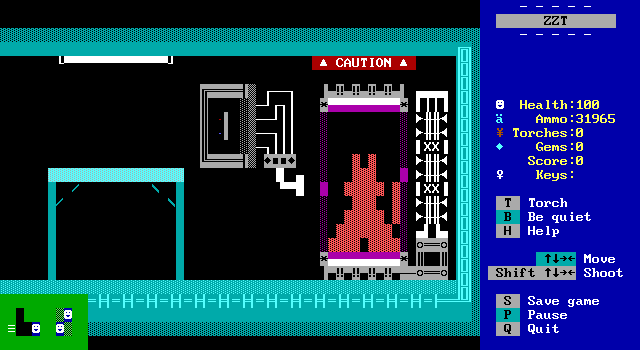
The next screen consists of this mysterious device and a fuse box. There are blinking lights next to the machine that are either red or green depending on how the fuses are placed.
